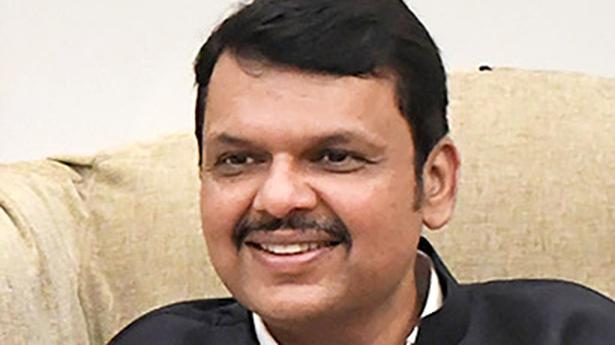
Scrapping of Article 370 was step towards achieving dream of Akhand Bharat: Fadnavis
The Hindu
“We do not have to wait for 2,000 years. We have to see the dream of Akhand Bharat in this lifetime and it has started with the abrogation of 370,” said Maharashtra Deputy Chief Minister Devendra Fadnavis
Maharashtra Deputy Chief Minister Devendra Fadnavis on Tuesday said the abrogation of Article 370 was a step towards achieving the dream of ‘Akhand Bharat’ or pre-Partition India.
He also invoked the Jewish tradition of yearning for return to Israel while talking about the observance of Partition Horrors Remembrance Day.
The BJP leader was speaking at an event organised to launch the ‘Har Ghar Tiranga’ initiative here in the presence of Lt Gen (retd) Rajendra Nimbhorkar who played a key role in the 2016 ‘surgical strike’ carried out by the Indian Army to destroy terrorist camps across the Line of Control.
On August 14, the country will observe Partition Horrors Remembrance Day, Mr. Fadnavis said, adding, "we all believe in 'Akhand Bharat (undivided India)', but as long as the dream of Akhand Bharat is not achieved, we all feel the pain that on this day my country was partitioned." The Jews prayed for 2,000 years seeking that they should be able to hold prayers in their holy land one day and eventually they got Israel back, he said.
"We do not have to wait for 2,000 years. We have to see the dream of Akhand Bharat in this lifetime and it has started with the abrogation of 370," Mr. Fadnavis said.
The Narendra Modi-led Union government in August 2019 abrogated the provisions under Article 370 of the Indian Constitution which granted a special status to Jammu and Kashmir.
"If we can not even call Kashmir our own, what about Akhand Bharat? But Modi ji had the capacity (to scrap Article 370)," Mr. Fadnavis said.

Prodancy Pvt Ltd, a medtech startup specialising in surgical consumables for joint replacement surgeries, has successfully raised ₹2.14 crore in a funding round co-led by Campus Angels Network and Keiretsu Forum Chennai, which also saw participation from existing investors Center for Cellular & Molecular Platforms (C-CAMP) and other angel investors.

“Writing, in general, is a very solitary process,” says Yauvanika Chopra, Associate Director at The New India Foundation (NIF), which, earlier this year, announced the 12th edition of its NIF Book Fellowships for research and scholarship about Indian history after Independence. While authors, in general, are built for it, it can still get very lonely, says Chopra, pointing out that the fellowship’s community support is as valuable as the monetary benefits it offers. “There is a solid community of NIF fellows, trustees, language experts, jury members, all of whom are incredibly competent,” she says. “They really help make authors feel supported from manuscript to publication, so you never feel like you’re struggling through isolation.”









